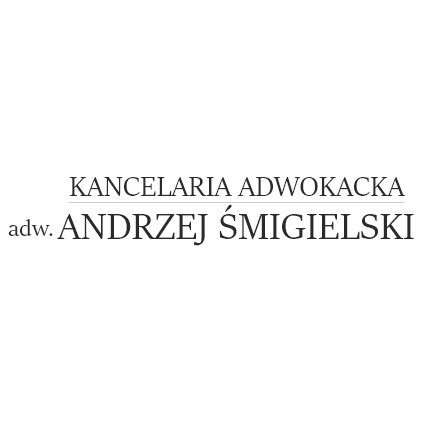Best Property Insurance Lawyers in Poland
Share your needs with us, get contacted by law firms.
Free. Takes 2 min.
Or refine your search by selecting a city:
List of the best lawyers in Poland
About Property Insurance Law in Poland
Property insurance in Poland is designed to protect property owners from financial loss due to damage or loss of their assets. This type of insurance covers a range of properties, including residential homes, commercial properties, and personal belongings. The most common types of property insurance in Poland include home insurance, fire insurance, and flood insurance. The legal framework governing property insurance in Poland is influenced by both national regulations and European Union directives, aiming to ensure consumer protection and fair practices in the insurance market.
Why You May Need a Lawyer
Property insurance claims can sometimes be complex and challenging to navigate without professional assistance. Here are some common situations where legal help might be necessary:
- Denied Claims: Insurance companies may deny claims for various reasons. A lawyer can help assess the validity of the denial and assist in appealing against it.
- Disputed Settlement: If you disagree with the settlement amount offered by the insurance company, a lawyer can negotiate on your behalf to seek a fair settlement.
- Policy Language Interpretation: Insurance policies can be difficult to understand due to complex jargon. Legal expertise may be required to interpret the terms and conditions of your policy accurately.
- Liability Issues: In cases where property damage may involve third-party liability, legal advice is crucial to navigate potential lawsuits or claims against you.
- Contractual Obligations: Understanding your rights and obligations under Polish law helps avoid disputes and ensures compliance with the insurance contract.
Local Laws Overview
Property insurance in Poland is primarily regulated by the Polish Civil Code and the Insurance Activity Act. Some critical aspects of local laws include:
- Consumer Protection: Insurers are required to follow stringent consumer protection laws to prevent unfair practices and must provide clear policy documentation.
- Claims Handling: The law mandates a specific timeframe within which insurers must process and respond to claims. Delays can be contested legally.
- Data Protection: Personal data protection is enforced by the Polish Personal Data Protection Act, ensuring the security and confidentiality of policyholder information.
- Standard Terms: Any deviation from standard insurance terms must be clearly communicated and agreed upon by the policyholder to be enforceable.
- Regulatory Oversight: The Polish Financial Supervision Authority (KNF) monitors and regulates the insurance industry to maintain fair competition and financial stability.
Frequently Asked Questions
What types of property insurance are available in Poland?
Available types include home insurance, tenant insurance, fire insurance, burglary, theft, and flood insurance. Some policies also cover natural disasters like earthquakes.
Is property insurance mandatory in Poland?
While not legally required for all properties, mortgage lenders usually mandate property insurance as part of the loan agreement.
How are premiums determined?
Premiums are calculated based on factors such as the property's value, location, coverage type, and the policyholder's claim history.
What should I do if my claim is denied?
First, review the denial letter for reasons. Then, gather documentation and consult a lawyer for advice on challenging the decision.
Can I change my insurer while my policy is active?
Yes, but you must follow the terms outlined in your contract regarding cancellations and potential penalties or obligations.
What is the typical claims process?
The process usually starts with notifying the insurer, submitting required documentation, and undergoing property assessment before settlement negotiation.
Are there penalties for not having insurance if required?
Yes, especially if mandated by a mortgage lender, which could result in fines or legal action.
How does the appeals process work for denied claims?
Contact your insurer or KNF, provide supporting documentation, and consider legal representation to strengthen your appeal.
What events are commonly excluded from coverage?
Typical exclusions include wear and tear, intentional damage, and damages during war or nuclear risks.
How can I ensure my personal data is protected?
Insist on understanding how your data is processed and stored, and report any breaches to the data protection officer or relevant authorities.
Additional Resources
Consider reaching out to the following resources for further assistance and information:
- Polish Financial Supervision Authority (KNF): Provides regulatory guidance and aids in dispute resolution.
- Office of Competition and Consumer Protection (UOKiK): Offers consumer rights protection and advice regarding unfair insurance practices.
- Polish Insurance Ombudsman: Assists with insurance-related complaints and queries.
- Legal Aid Centers: Provide free or low-cost legal assistance for insurance claims.
Next Steps
If you find yourself in need of legal assistance regarding property insurance in Poland, consider the following steps:
- Document Everything: Keep a record of all communications, policies, and any damages or related incidents.
- Contact Your Insurer: Start by verifying your claim and all related processes with your insurance provider.
- Consult a Professional: Seek out a specialized lawyer in property insurance to evaluate your case and provide legal advice.
- Explore Mediation: Consider mediation as an amicable way to resolve disputes with your insurer.
- Legal Action: If necessary, prepare to take legal action by filing a lawsuit to protect your rights and interests.
Lawzana helps you find the best lawyers and law firms in Poland through a curated and pre-screened list of qualified legal professionals. Our platform offers rankings and detailed profiles of attorneys and law firms, allowing you to compare based on practice areas, including Property Insurance, experience, and client feedback.
Each profile includes a description of the firm's areas of practice, client reviews, team members and partners, year of establishment, spoken languages, office locations, contact information, social media presence, and any published articles or resources. Most firms on our platform speak English and are experienced in both local and international legal matters.
Get a quote from top-rated law firms in Poland — quickly, securely, and without unnecessary hassle.
Disclaimer:
The information provided on this page is for general informational purposes only and does not constitute legal advice. While we strive to ensure the accuracy and relevance of the content, legal information may change over time, and interpretations of the law can vary. You should always consult with a qualified legal professional for advice specific to your situation.
We disclaim all liability for actions taken or not taken based on the content of this page. If you believe any information is incorrect or outdated, please contact us, and we will review and update it where appropriate.
Browse property insurance law firms by city in Poland
Refine your search by selecting a city.

















